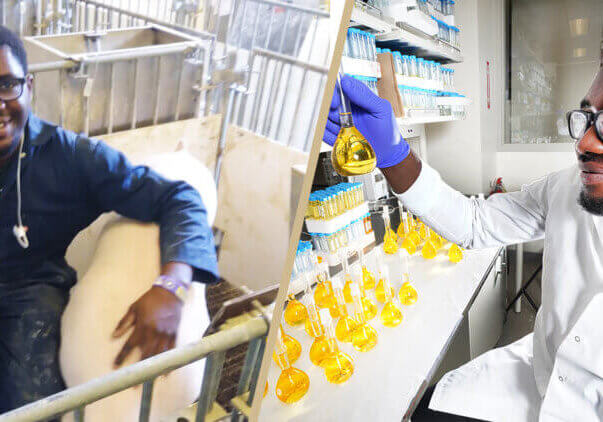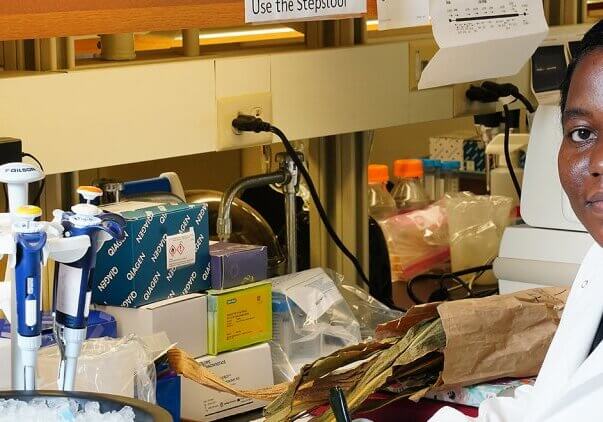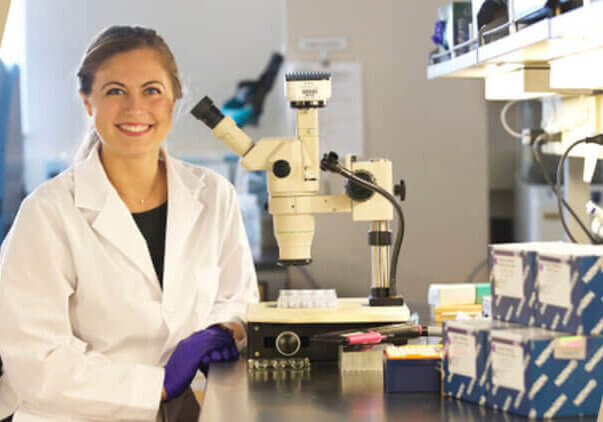"C
ongratulations! Well deserved. We’re so proud of you!”
Michelle Egger, co-founder and CEO of BIOMILQ, woke up on Dec. 1 to an inbox full of congratulatory emails that left her completely confused.
“I’d been so focused on the scientific milestones we were working toward that it took me a couple of hours to figure out what in the world the emails were referring to,” Egger recalled. “It was like the rest of 2020. Low lows and high highs, both coming out of nowhere.”
Forbes selected Egger for its 30 Under 30 list for 2021, an annual compilation of the world’s most promising young entrepreneurs.
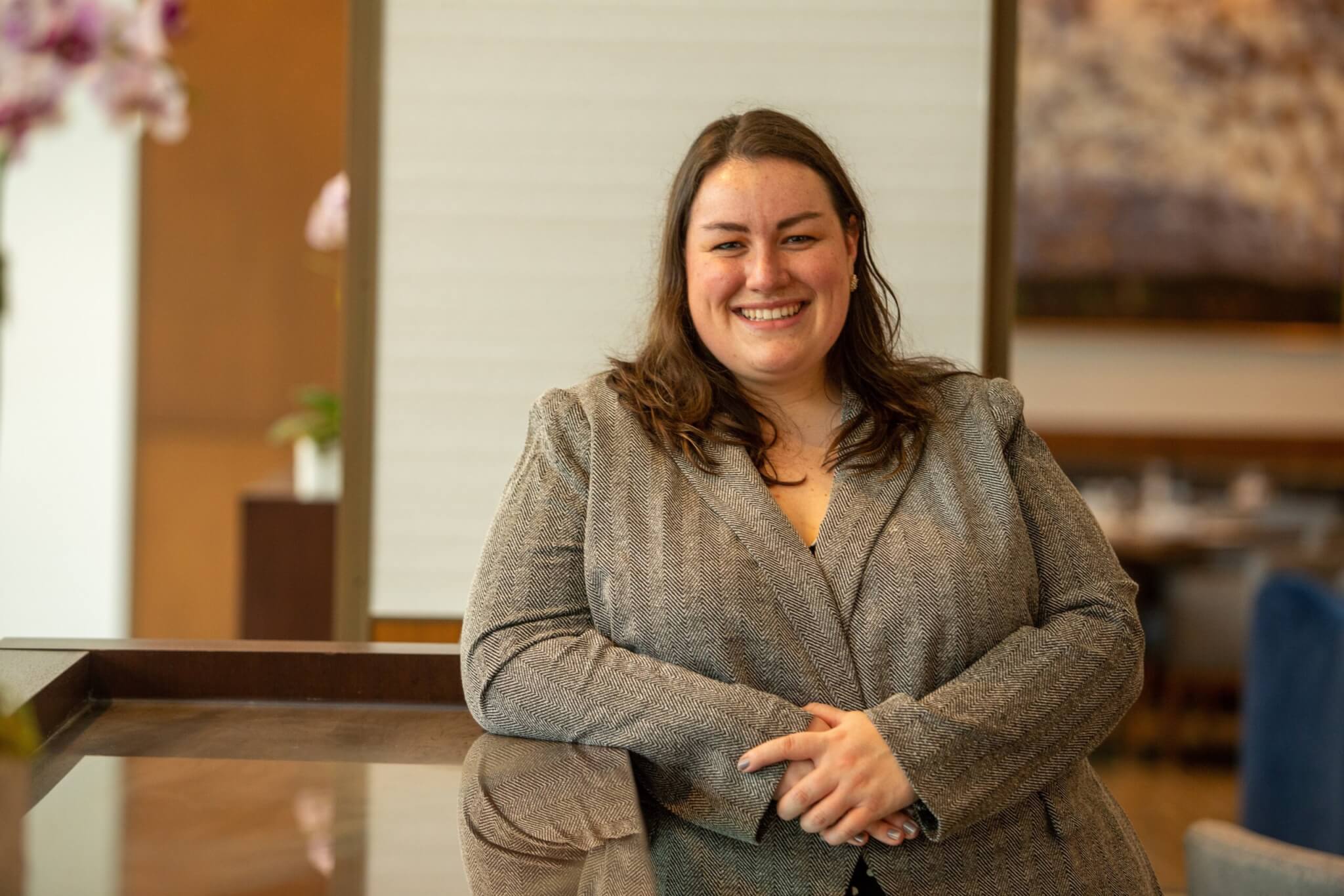
Egger graduated from Purdue in 2015 with a degree in food science. In 2018, she left her job with General Mills to attend business school at Duke University in Social Impact & Entrepreneurship. She helped found BIOMILQ during her second year at Duke, in 2019. The company developed a new formula breastmilk, made by culturing mammary cells in their lab. The resulting product has similar nutritional value to traditional breastmilk.
“The infant formula on today’s market is not as effective as traditional breastmilk in cognitive development, skeletal growth, muscular growth and development of the immune system,” Egger explained.
“We’re strong supporters of breastfeeding, but the reality is 84% of mothers in the United States move partially or entirely to infant formula in the first six months of their baby’s life. Whether breastfeeding isn’t possible because of medical reasons or personal choices, we want to create an alternative without dramatic health trade-offs.”
While Egger says her work could have fit in one of several categories on the 30 Under 30 list, she was delighted to be featured within social impact. “What we’re doing is an exciting entrepreneurial and technological pursuit, but we are most proud of the impact our product will have on the world. Being acknowledged for that potential made the recognition even sweeter.”
In June, BIOMILQ earned the support of Breakthrough Energy Ventures, Bill Gate’s investment firm, with $3.5 million in funding.
Egger credits her time at Purdue as a key to her early-career success.
“Purdue was a great fit for me,” she shared. “My department was hyper-focused on making sure all of the food science graduates were prepared to work within the industry as it exists today. The applied science prepared us to solve challenging, technical problems. Because of the methods the students learned, we are now finding ways to help people, build a market, improve efficiency and make things safer for our planet.
“The recognition from Forbes reflects how prepared I was to get up to speed quickly and succeed.”
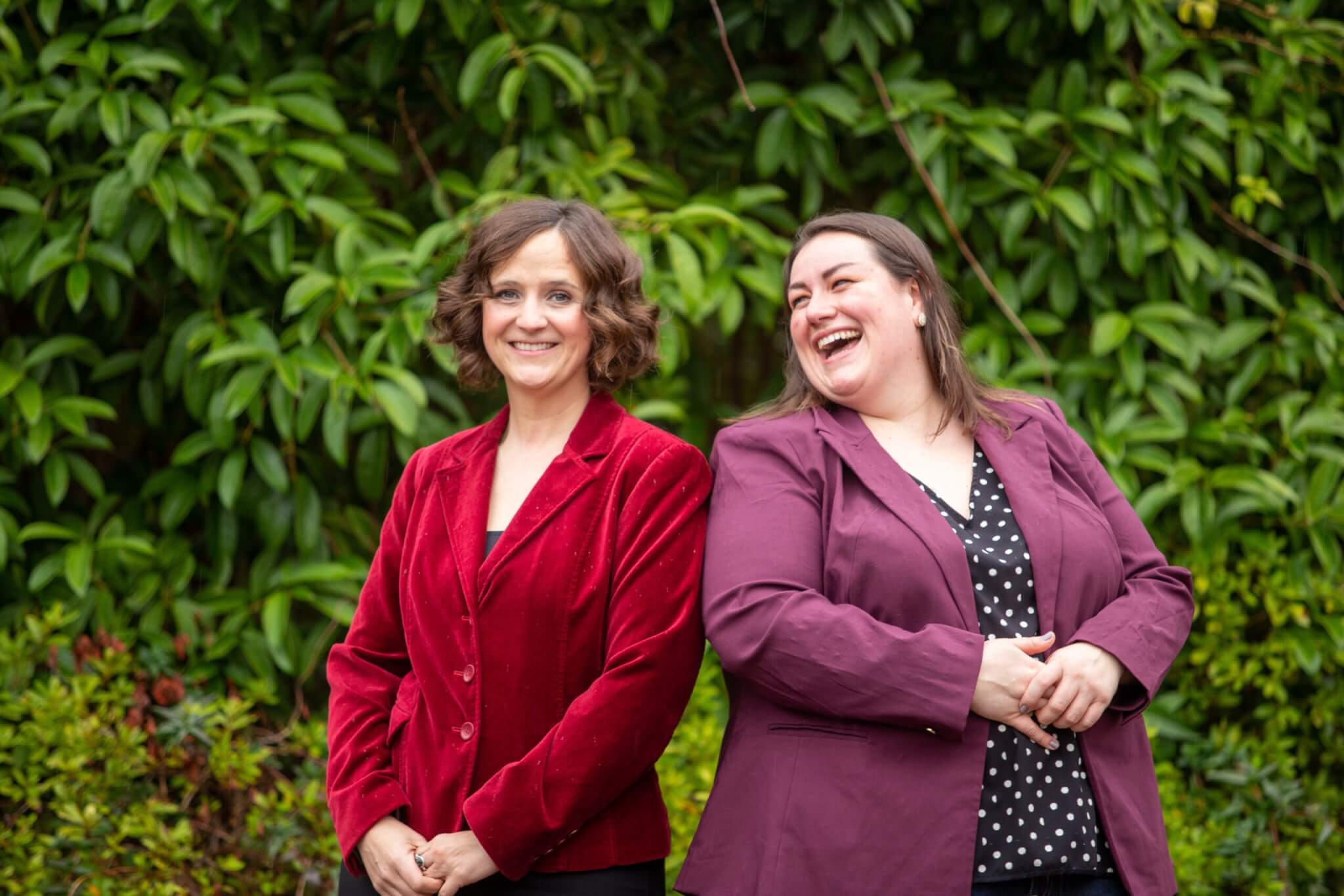
Clean lab coats and muddy boots balance student’s research
“In every generation, there are new discoveries that shift the trajectory of the industry,” said Ayodeji “Ayo” Aderibigbe, a doctoral student in the Department of Animal Sciences. “That motivates me to work hard and be among a group of people who are dedicated to improving global food security. I want to be a problem solver, not just a solution announcer.”
Read Full Story >>>Student embraces research opportunities in America, plant pathology
Agriculture was supposed to be a quick detour for Tiffanna Ross. Just one semester while she waited for space to open in the University of Guyana’s undergraduate biology program.
“But I developed a liking for agriculture and it worked out for the best,” said Ross, now a doctoral student in the Department of Botany and Plant Pathology at Purdue.
Read Full Story >>>As pandemic persists, student’s research holds new importance
As a sixth-grader, Emma Lendy was the only girl in her class to choose the category, How Things Work, for her science project. In helping her build a telegraph, Lendy said her father, a mechanical engineer, “fostered my interest in delving into why things work, not just taking them for granted.”
Lendy’s inquisitiveness and Purdue’s reputation drew her to the university. While an undergraduate student, Lendy worked in the lab of Barbara Golden, a professor of biochemistry.
Read Full Story >>>Clean lab coats and muddy boots balance student’s research
“In every generation, there are new discoveries that shift the trajectory of the industry,” said Ayodeji “Ayo” Aderibigbe, a doctoral student in the Department of Animal Sciences. “That motivates me to work hard and be among a group of people who are dedicated to improving global food security. I want to be a problem solver, not just a solution announcer.”
Read Full Story >>>Student embraces research opportunities in America, plant pathology
Agriculture was supposed to be a quick detour for Tiffanna Ross. Just one semester while she waited for space to open in the University of Guyana’s undergraduate biology program.
“But I developed a liking for agriculture and it worked out for the best,” said Ross, now a doctoral student in the Department of Botany and Plant Pathology at Purdue.
Read Full Story >>>As pandemic persists, student’s research holds new importance
As a sixth-grader, Emma Lendy was the only girl in her class to choose the category, How Things Work, for her science project. In helping her build a telegraph, Lendy said her father, a mechanical engineer, “fostered my interest in delving into why things work, not just taking them for granted.”
Lendy’s inquisitiveness and Purdue’s reputation drew her to the university. While an undergraduate student, Lendy worked in the lab of Barbara Golden, a professor of biochemistry.
Read Full Story >>>